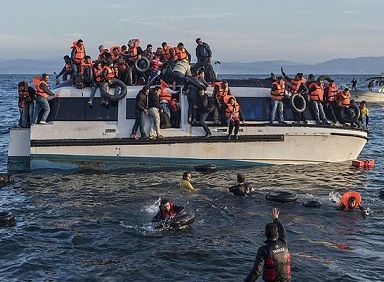Denmark’s minister for development and co-operation, Ulla Tørnæs, has revealed that the government is ready to contribute an extra 10 million kroner to the work of the United Nations body for refugees, UNHCR.
The money will be used to help refugees and migrants trying to enter Europe – often through hazardous routes across the Mediterranean.
More precisely, the funds will primarily be spent in the countries of origin and transit, such as Algeria, Burkina Faso, Chad, Egypt, Ethiopia, Libya, Mali, Mauritania, Morocco, Niger, Senegal and Sudan, in a bid to reduce the migrant stream.
READ ALSO: Danish government to lengthen loan of Challenger aircraft to border task force
Publicising the grim realities
Among other things, the extra cash will be used to develop information campaigns spelling out the risks and realistic outcome of such journeys, facts about local authorities’ ability to handle migrants, and protection against violence in transit camps.
“It is vital that we strengthen the EU’s outer borders if we are to be able to handle the pressure of migrants on Europe,” said Tørnæs.
“At the same time, it is essential we increase our efforts on the migration routes, for example with support to local authorities so they can better combat people-trafficking networks and that we contribute to information campaigns so young Africans don’t risk their lives on a fruitless journey to Europe.”
Denmark has previously contributed to UNHCR’s appeal for funds for the Mediterranean route with 15 million kroner in 2017 and 35 million kroner in 2018.














